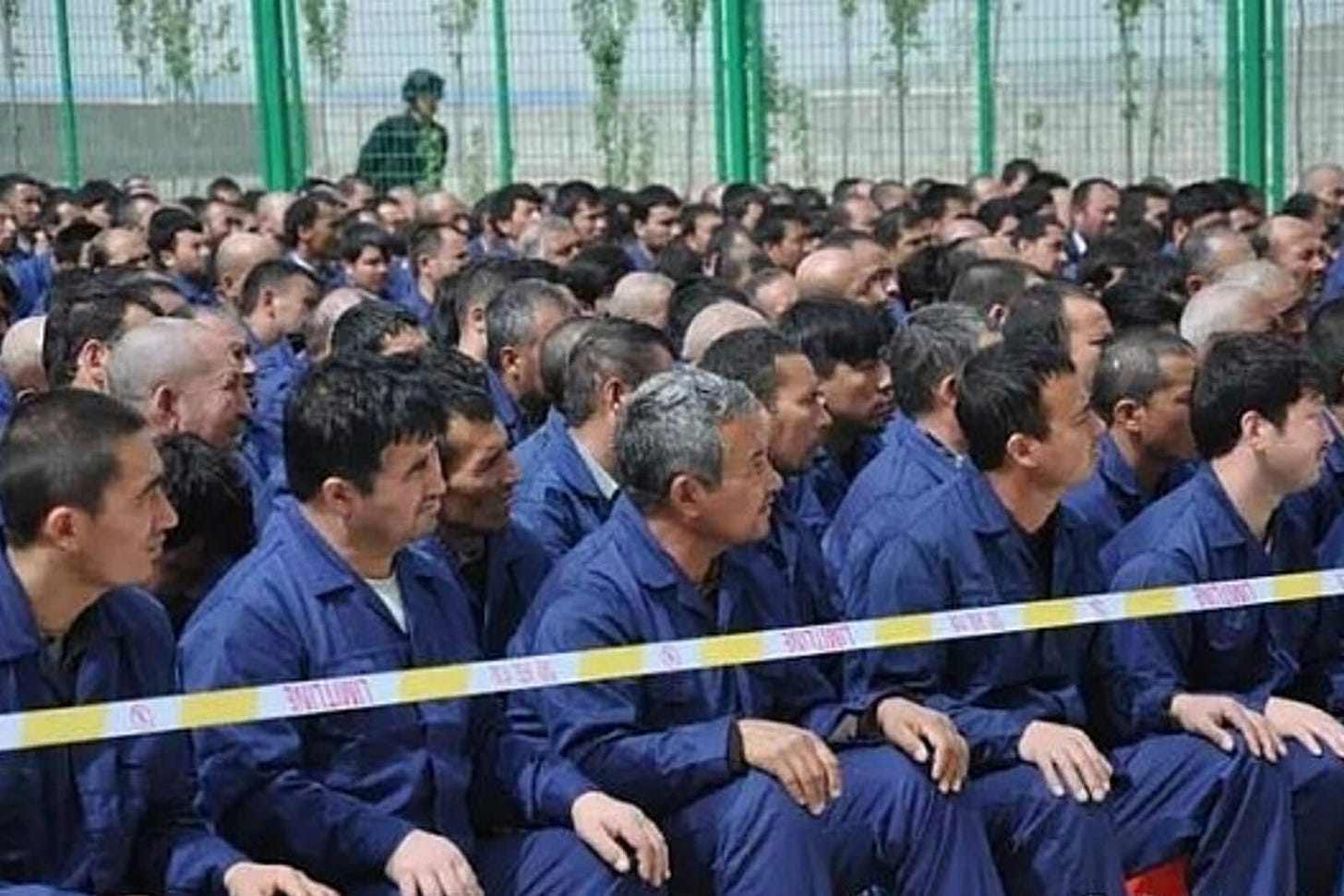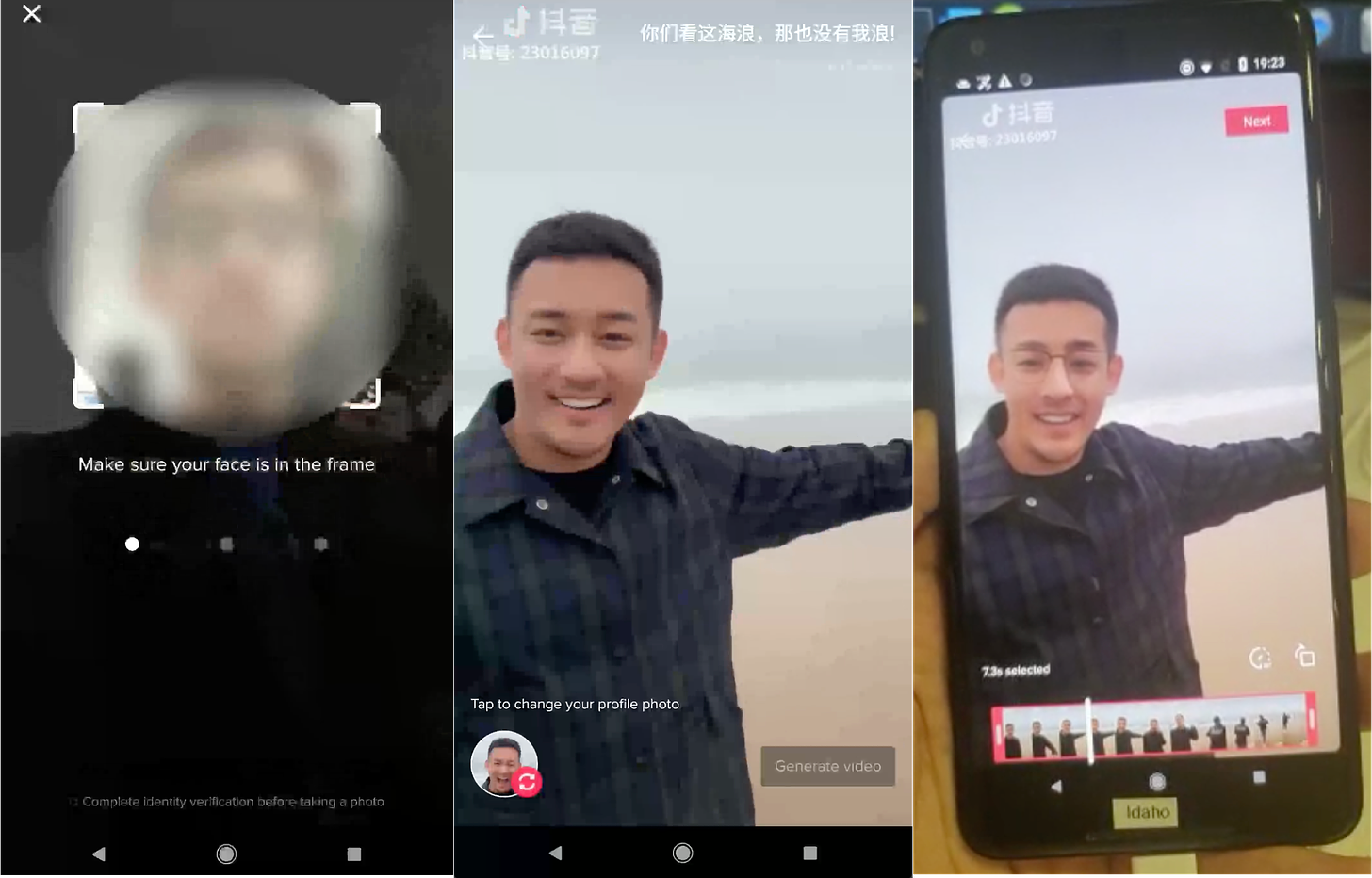Hi friends, happy Friday! 👋
I’m BACK! It’s been a while since my last newsletter. I took a bit of break over the holidays but I’m really excited to get back to writing.
This week’s topic is probably one of the most important pieces that I’ve written for my newsletter so far. It may seem like it deviates slightly from retail, but it’s incredibly related, I promise! Make sure you read to the end to find out why.
Comment below and let me know what you think!
What is Xinjiang?
Xinjiang, China is an autonomous territory in northwest China tucked away in the vast desert mountains. In the same way that most people had never heard of Wuhan prior to it being the epicenter of the Coronavirus Pandemic, most people have never heard of the province of Xinjiang, despite it being home to about 25 million people.
The population of Xinjiang is comprised of many ethnic minority groups, including the Turkic Uyghur people. In the 18th century, the area was conquered by the Chinese Qing dynasty and in 1884 it was renamed Xinjiang. It is now a part of the People’s Republic of China, despite the resistance of the local population.
Why Does This Matter?
For the past several years, human rights activists have been ringing the alarm bells around the Chinese government’s treatment of the Uyghur Muslim population. The government has installed sophisticated surveillance technology across the Xinjiang region, and there has been a surge in police numbers.
The biggest human rights concern is the “vocational training centers” or re-education camps in which up to 1 million Uyghurs are being imprisoned. While the Chinese government claims that these camps are providing job training and putting detainees on production lines for their own good, more and more evidence is surfacing that these are forced labor camps.
“These people who are detained provide free or low-cost forced labor for these factories,” said Mehmet Volkan Kasikci, a researcher in Turkey who has collected accounts of inmates in the factories by interviewing relatives who have left China.
Coincidentally, Xinjiang is one of the most resource-rich areas of China and a key exporter of oil, produce, and up to 20% of the world’s cotton. Seeing the connection to retail now?
The Global Stance
Despite the UN’s condemnation of these camps, the Chinese government is standing behind their viewpoint that these “camps” are necessary in the global fight against Islamic terrorism (the UN renounces this idea).
Most recently, the United States has taken a hard stance on this issue. Pompeo, on his last days in office, banned the import of ALL goods and raw materials coming from the Xinjiang province, citing a genocide of the Uyghur people. Any goods that are suspected to have raw materials coming from Xinjiang will be stopped and confiscated at customs.
“Mega-brands like Nike, Apple, and Coca-Cola were actually lobbying against the US legislation against forced labor in Xinjiang.”
The Corporate Response
Large brands like Patagonia and H&M have already announced that they will be exiting the Xinjiang region. However, mega-brands like Nike, Apple, and Coca-Cola whose supply chains are deeply embedded across China, were actually lobbying against the US legislation against forced labor in Xinjiang. Thankfully, despite the opposition from these large corporations, the law passed with bipartisan approval.
How This Impacts Retail
With up to 20% of the world’s cotton produced in Xinjiang, you can imagine the impact that this will have on the fashion industry. The challenging part is that many brands and retailers don’t actually know where the raw materials for their products are sourced. Now, brands and retailers either have to spend time doing the due diligence to confirm that their raw materials were in fact not sourced from Xinjiang, or risk goods being confiscated at customs.
This crisis has shined yet another light on the complex and often dirty supply chain of the fashion industry.
What can you do?
Humanitarian and environmental issues are at the forefront for younger consumers. Consumers want radical transparency and accountability. This means that apparel producers will be expected to be responsible for the entire lifecycle of their products from raw materials to disposal.
As a consumer, you can vote with your wallet, and ask that the brands you shop from are open and transparent about not only their factories and working conditions but also about their supply chain.
Please share this article to get the word out about this humanitarian issue! The more people who know about this the larger the impact will be.
Retail+Tech News:
-
You can’t talk about this week without addressing the GameStop drama. A wave of at-home traders found each other on the red-hot “wallstreetbets” Reddit chat room, whose members have ballooned to over 3 million.
-
The Wallstreetbets community rallied together to stand behind the company GameStop which had a large short interest from hedge funds. Retail traders continued to buy shares and drive up the price coordinating a monstrous short squeeze in GameStop in which hedge funds were losing billions.
-
Most recently Robinhood halted trading on stocks that were being targeted by Wallstreetbets, there are now questions over the legality of this action.
Retailers Participate in Vaccine Rollout
-
Amazon.com sent a letter to new U.S. President Joe Biden offering “to assist you in reaching your goal of vaccinating 100 million Americans in the first 100 days of your administration.”
-
As President Joe Biden has promised to pick up the pace to 100 million doses administered in the first 100 days of his presidency, the administration is expected to pursue public-private partnerships as a path to hitting those targets.
-
Walmart said that as a “federal pharmacy partner,” it would be able to bring on “federally allocated” vaccine doses at its pharmacies, including thousands located in “federally designated medically underserved areas.”
Tiktok Tests Face Swap Feature:
-
TikTok parent company ByteDance has built technology to let you insert your face into videos starring someone else.
-
The deepfakes feature, if launched in Douyin and TikTok, could create a more controlled environment where face-swapping technology plus a limited selection of source videos can be used for fun instead of spreading misinformation.
Follow me on Social!
-Jackie


Recent Comments